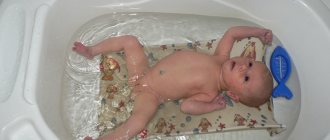Is it possible to get pregnant while breastfeeding?
If a girl gives birth once, she can give birth a second time. This requires only the next ovulation of the egg and its fertilization by sperm.
When breastfeeding, follicle maturation slows down due to the influence of the hormone prolactin. It enters the bloodstream especially actively during the baby’s suckling process. Therefore, women tend to believe that it is impossible to get pregnant while the baby is on breastfeeding. This opinion is wrong.
The maturation of the follicle under the influence of prolactin only slows down, but does not stop, and the egg can leave it and be fertilized at any time. Features of the hormonal background during lactation do not affect the implantation of the embryo into the uterus and its further development. Therefore, pregnancy and breastfeeding can occur simultaneously without problems.
Is it possible to get pregnant while breastfeeding without menstruation?
Breastfeeding to some extent protects a woman’s body from pregnancy, as evidenced by postpartum lactational amenorrhea. But menstruation is only the result of ovulation that took place two weeks ago, and not evidence of the inability to get pregnant.
If there are no periods during the postpartum period, the first ovulation occurs unnoticed by the woman. If, after the release of the egg, it is fertilized, the embryo will be safely implanted in the uterus and begin to develop. Pregnancy will occur against the background of the absence of menstruation, and it will be difficult to notice it in the early stages.
Pashkova Alla Valerievna
Obstetrician-gynecologist, candidate of medical sciences.
Ask a Question
Therefore, if you do not want to have another child immediately after childbirth, spouses should take care of traditional contraception. You should not rely on amenorrhea as a sign of lack of ovulation.
What happens in a woman’s body during lactation
Doctors often call the time after childbirth lactational amenorrhea. During the period when a woman is breastfeeding (about 6 months after the baby is born), the hormone prolactin is actively produced in her body. It is responsible for the production of breast milk and more. It is under the influence of prolactin that the maturation of follicles is blocked. A woman does not ovulate, her periods do not occur, that is, the reproductive function essentially does not work . It is this phenomenon that is natural contraception during breastfeeding.
Prolactin, produced during lactation, blocks ovulation
How long after giving birth can you get pregnant?
If a girl refuses breastfeeding immediately after childbirth, then her first ovulation may occur in 4-6 weeks. Accordingly, your period will begin two weeks after this. Considering that restoration of the vagina after childbirth takes 1.5-2 months, sex during this period will be undesirable for a woman and is unlikely to bring pleasure.
It turns out that any sexual intercourse after a 2-month break if you refuse breastfeeding can lead to a recurrence of pregnancy.
Breastfeeding women may have their first period 8-9 weeks after giving birth, but for most they appear only after 6-10 months. The specific period depends on the individual characteristics of the woman and the level of prolactin. By 6 months after birth, its concentration in the blood drops by 2 times, and by a year - by 3-4 times. In principle, you can become pregnant during breastfeeding at any time except the first two months after birth.
Why can you get pregnant during lactation?
Lactational amenorrhea does not protect against pregnancy 100%. It happens that conception still occurs. A woman's menstrual cycle is restored gradually; for some women, periods appear within a few months after childbirth, while for others, only after a year, and this is absolutely normal . The duration of lactational amenorrhea is also influenced by the quality of breastfeeding: if the mother exclusively breastfeeds the child, without formula, then the amenorrhea will last quite a long time.
According to statistics, unplanned pregnancy during lactation occurs in 2-3% of women.
But it is impossible to predict when a woman’s hormonal background will begin to change and fertility will be restored. First, follicle maturation and ovulation will occur in the expectant mother’s body, and only then (after 14–16 days) menstruation will begin, that is, the woman simply will not notice the restoration of the cycle at first. If unprotected sexual intercourse occurs at this time, it is quite possible that the woman will become pregnant.
The neighbor began to stir. I went to the doctor complaining of frequent rumbling in my stomach. They sent me for an ultrasound. And there are already 17 weeks. She breastfed her youngest and became pregnant.
Anna Kichko
https://deti.mail.ru/forum/v_ozhidanii_chuda/beremennost/beremennost_vo_vremja_grudnogo_kormlenija/
The chance of getting pregnant during lactation is 2–3%
Pregnancy while breastfeeding: symptoms
Symptoms of pregnancy during lactation are the same as during normal pregnancy.
They are more difficult to notice because the period of breastfeeding is full of changes in the mother’s body.
The main signs of pregnancy during breastfeeding are:
- Increased fatigue and, as a result, increased appetite.
- The appearance of sore nipples with the same pattern of feeding the child.
- A decrease in the amount of milk, the child begins to malnourish. This happens due to the redistribution of nutrients between the embryo and milk.
- The taste of milk becomes saltier, which can lead to the baby refusing to breastfeed.
- Unpleasant sensations in the area of the uterus and ovaries.
- Increased frequency of urination.
- Delayed menstruation.
- Toxicosis with its classic manifestations: nausea, dizziness, vomiting, etc.
- Changes in mother's taste preferences.
To ensure a guaranteed diagnosis of pregnancy when sexual life and breastfeeding are combined, it is recommended to conduct a monthly rapid test. Two stripes appear on it already 7-10 days after fertilization of the egg. If several symptoms of pregnancy are detected, the test can be repeated 2-3 times.
Pain and other problems with sex after childbirth
When resuming sexual activity after childbirth, a woman may encounter the following problems:
- Vaginal dryness. After childbirth, most women, especially those who are breastfeeding, experience a sharp decrease in the level of female sex hormones - estrogens. As a result, the amount of natural vaginal lubrication produced decreases. For this reason, sexual intercourse can be uncomfortable and even painful for a woman. In this case, you should stock up on special lubricant in advance, which can be bought at any pharmacy. You just need to carefully monitor the composition of these lubricants and not use those that contain hormones if a woman is breastfeeding.
- Pain during sexual intercourse may also be associated with the presence of sutures and scars on the perineum and vaginal walls; sometimes, due to sutures, the configuration of the vagina may change. Pain may also be observed in the area of the scar on the anterior abdominal wall after a cesarean section. Any suture during healing can cause some discomfort. This is due to changes in the sensitivity of the injured when the nerve endings are cut or ruptured. To avoid or eliminate pain in the suture area, during sexual intercourse you need to choose a position in which minimal pressure is applied to the scar. As the nerve endings adapt, over time, the discomfort in the suture area will pass. You can consult with your gynecologist, who will recommend local medications to speed up tissue restoration in the scar area. These drugs can also be used by nursing mothers.
- Changes in the tone of the vaginal muscles can leave their mark on the sensations during the first sexual intercourse. However, the weakening of muscle tone and vaginal enlargement is temporary and this problem will go away within a few months, especially if the woman can find a few minutes a day to perform Kegel exercises. Kegel exercises involve contracting the pelvic muscles that support the vagina. These muscles contract when a woman stops urinating or tightens her vagina. During the exercises, the muscles contract strongly for one or two seconds, then relax; To achieve the effect, it must be repeated several times a day for 5-30 contractions. Ideally, it is better to practice such exercises during pregnancy: the woman will come to childbirth more prepared, and after the birth of the baby, the muscles will tone up faster.
- Some problems during sex after childbirth may arise with the breasts. Firstly, touching the nipples of the mammary glands can be unpleasant and sometimes even painful. Secondly, during orgasm, due to the release of the hormone oxytocin, milk is released from the nipples. To avoid this, it is best to choose a time about an hour after feeding the baby, then the possibility of milk appearing from the breast is the least, but if this still cannot be avoided, it is worth having a towel on hand.
It must also be said that many women after childbirth do not experience any problems with sex - on the contrary, they say that the attraction to their husband has become stronger and the orgasm is brighter.
Breastfeeding and new pregnancy
Lactation does not interfere with pregnancy until 5-7 months, when uterine myocytes begin to respond to oxytocin. This hormone is released into the blood when the baby is fed and is responsible for the movement of milk from the alveoli into the ducts of the gland. It also stimulates uterine contractions and can lead to pregnancy failure.
But in the absence of any negative symptoms, breastfeeding can continue until birth. You can resume it immediately after them. Joint breastfeeding will bring babies closer together psychologically and will provide them with the optimal amount of nutrients.
If a woman wants to wean her first child, it is better to do this before the 8th month of pregnancy, so that the baby does not consider his brother or sister a competitor for mother’s milk.
When breastfeeding and pregnancy are combined, it is important to properly rest and eat, because a woman is responsible for three organisms at once. In this condition, priority is given to carrying a new baby, so if breastfeeding begins to negatively affect the health of the mother or the embryo, it should be stopped after consultation with a doctor.
Question to the expert
Hello! Tell me, what signs of pregnancy can a nursing mother have without menstruation? There is no way to buy a test, and the symptoms are very suspicious.
A pregnant nursing mother may not even suspect that she is carrying a baby inside. You can read about possible symptoms in the article, but they are purely individual. If the condition is similar to what it was during a previous pregnancy, then there is a reason to consult a doctor for examination.
End of GW? Or tandem? Is it possible to combine pregnancy and breastfeeding?
12.11.2016
.
How long after giving birth does a woman think about another pregnancy? This happens differently for everyone. Some people begin to dream of a round belly within six months, while others, even 5 years after the birth of their baby, shudder to think about adding to the family.
However, planning a new pregnancy also has a medical aspect: quite often, gynecologists recommend not thinking about a new pregnancy until breastfeeding is completed.
In fact, everything is not so simple. The question of the length of the interval between births is relevant and has not been resolved to this day; according to various sources, the period can vary from 18 months to 4 years. This is especially important considering that it takes time for the body to recover; only the immune system, for example, takes up to one and a half years to recover. At the same time, fertility in women can be restored almost immediately after childbirth.
Another interesting fact: despite the fact that women are recommended to have sexual rest for 6 weeks after giving birth, according to a number of researchers, more than a quarter (26%) of women in labor become sexually active before this period. Given this fact, as well as my experience as an obstetrician-gynecologist, I firmly believe that any woman after giving birth (especially if she had a caesarean section) should receive advice on the most optimal methods of contraception for her.
There is a type of contraception called the lactational amenorrhea method, which occurs when a woman is actively breastfeeding. The effectiveness of the method is 98%, but only if a number of conditions are strictly observed:
1. After giving birth, the woman has not yet had a single menstruation.
2. The child is no more than 6 months old
3. The child is exclusively breastfed: there are no supplements or complementary foods in his diet. Night feeding breaks should not be more than 3 hours.
It is important to note that even if all conditions are met, the probability of pregnancy is 2%, which is not so small.
So - combining breastfeeding and pregnancy. This issue causes a lot of concern among women, so we will try to sort it out. Often doctors themselves insist on stopping breastfeeding when pregnancy occurs. These recommendations are based primarily on the potential threat of uterine contractions and miscarriage, which allegedly can be triggered by oxytocin released during sucking. In fact, the sensitivity of the uterus to the contractile effects of oxytocin gradually increases only at the time of birth, so there is no difference in the rate of miscarriage between breastfeeding and non-breastfeeding women . This has been confirmed by many scientific studies.
Another myth associated with the work of hormones during pregnancy is the claim that prolactin blocks the work of the ovaries, which leads to a lack of production of progesterone (the pregnancy hormone) and, as a result, the threat of miscarriage. Yes, indeed, prolactin suppresses the functioning of the ovaries. However, after conception, the child's human chorionic gonadotropin (hCG) controls the development of the corpus luteum of pregnancy and its release of all necessary hormones.
Many mothers also fear the “harmful” effect of lactation hormones on the condition of the fetus, but there is no literary data on their negative effect on the development of the baby. And vice versa: pregnancy hormones do not have a negative effect on the older child, since natural estrogens and progesterone are destroyed by his gastrointestinal tract and liver.
Separately, it should be said about the rules of nutrition and a sufficient amount of vitamins and minerals for the mother and both babies. There is an opinion that if a mother breastfeeds, the younger child will not have enough nutrients for growth and development, or, conversely, her milk will become insufficiently nutritious for the older baby. This is another myth. Breast milk is always the best food for a baby , containing a sufficient amount of vitamins and immunoglobulins. The youngest child will also always receive all the necessary nutrients. But the mother herself needs to take care of herself and eat well in order to maintain strength and health. Her diet should be complete, varied, contain a minimum of preservatives, dyes, etc. At the same time, she definitely shouldn’t eat for three.
Despite the fact that most of the prejudices regarding the combination of pregnancy and breastfeeding have turned out to be unfounded, the mother may still have certain difficulties, with which we will try to help.
Some women complain of sensitivity and even soreness of the nipples that occur during feeding. Indeed, during pregnancy, the nervous system undergoes significant changes: the excitability of nerve receptors and the perception of one’s own sensations change. The use of creams in this case, as a rule, is ineffective, since the reasons here are rather hormonal. Therefore, if pain occurs, it is imperative to check the correct application. Mom may need to find a new feeding position that will be less painful. Also try to distract yourself: sing a lullaby to your baby, tell a story, read a book, listen to music. Try not to focus on breast soreness while feeding. And remember that the period of increased sensitivity usually ends after the first trimester, and the problem goes away with it.
There are cases when the onset of pregnancy leads to premature termination of breastfeeding. The fact is that an increase in the levels of estrogen (prolactin antagonists) during pregnancy can lead to a decrease in milk production and its composition closer to colostrum. Thus, a change in the taste of milk and spontaneous termination of breastfeeding may occur. It is necessary to understand that this is purely hormonal in nature and does not depend in any way on the nutrition and drinking regime of the mother herself.
Another point: the use of vitamins and medications. Many mothers worry about taking medications prescribed during pregnancy. Most are compatible with breastfeeding, but you should always tell your doctor that you are breastfeeding when you get your prescription. If the doctor is in doubt or cannot answer all the questions, there is always the opportunity to contact a lactation consultant on the hotline. It is advisable that the lactation specialist have a medical education.
As you can see, a normal pregnancy cannot be an indication for stopping breastfeeding, and combining breastfeeding and pregnancy is not so difficult. However, the decision about whether to continue breastfeeding or not should be made only by the woman herself. Perhaps the mother will decide to continue breastfeeding and in the future will be able to feed both the older and younger child together (the so-called tandem). If a woman decides to excommunicate her elder, this is her right. However, remember that this should be done as gently and gently as possible for the child. Certified lactation consultants will help you do it right
Elena Verkina lactation consultant , obstetrician-gynecologist
COMMENT ON THIS ARTICLE
Calling a breastfeeding consultant Feeding clothes, slings
Did you like the article? 128
Share
Same age children and breastfeeding
The next stage of the search was the Internet. And there I found the same contradictory information. However, there was still more positivity. Here's what mothers who faced a similar choice say.
Elena, 28 years old, mother of Kolya (4 years old) and Elizaveta (1 year 2 months).
When I became pregnant, Kolya was 2 years old. The pregnancy was planned. My husband and I wanted our children to not have too much of an age difference. Breastfed for the first 3 months of pregnancy. With the beginning of pregnancy, there seemed to be less milk. The baby had to suck longer to get a flush. He gradually began to become lazy, switching to “nominal” sucking.
I had severe toxicosis both times. For me, of the three points “pregnancy-childbirth-baby”, the most difficult to bear is pregnancy. There was soreness in the nipples. Tolerant. I mentally prepared the older one: “You’re growing up, mom’s milk is getting less…” The number of feedings itself gradually decreased. In the end, the child came running to my bed only in the morning, kissed for 10-15 seconds and that was all. And then he stopped altogether.
I take prenatal and nursing vitamins whenever I remember :-). And, of course, I try to eat well and have a varied diet. I try to avoid caffeinated drinks.
The change in the taste of milk was associated with involution rather than pregnancy. The milk became salty, as it should be. There was no threat.
The baby was not yet ready for weaning, but I was already mentally prepared for a second pregnancy. That is, I wanted not to delay the second one, but I also didn’t want to deprive the child of the type of feeding he needed against this background. And so it all ended very naturally and sweetly. Now he calmly watches me feed Lisa. He is not jealous of breasts. He doesn’t ask because “I’m already big.”
Elizaveta Tribunskaya, 25 years old, mother of Irina (5 years), Tatyana (3 years, 8 months), Yulia (10 months).
She became pregnant when the eldest was 8 months old. I nursed her until she was one year old - 4 months pregnant. No differences were found from feeding the youngest without pregnancy. During breastfeeding and pregnancy I took vitamins Pregnavit and Materna. Sometimes I raised hemoglobin with iron, but I don’t tolerate it well, so I tried to do it less often. During pregnancy, I practically give up meat and poultry, i.e. meat - no more than once a week, mainly vegetables and fish.
There was no threat, the nipples are very sensitive, because of this I stopped feeding, otherwise I would have fed more. Somehow the question of stopping feeding did not arise. We feed until a year - this was my attitude, and I did not find pregnancy as a contraindication to feeding.
Isaeva Daria, mother of Vadim (3.5 years old) and Artem (2 years old).
Age at the time of the second pregnancy was 29 years, the eldest child was 9 months old. She nursed until she was a year old (that is, 3 months pregnant), the elder’s behavior did not change in any way - he ate with pleasure all the time. The feeding schedule also did not change - I reduced it for the last month, as I planned to stop feeding.
The sensations during feeding became sharply unpleasant when pregnancy occurred, rather on a psychological level. There was no pain, and there was no threat (despite the suture on the uterus after the first cesarean). I stopped feeding because summer was coming, the eldest child often visited his grandmothers, I was working and I wanted to finish the process myself.
I didn’t take vitamins and ate well.
Osipova Olga, 30 years old, mother of Yuri (3 years 4 months) and Alexandra (1 year 4 months).
At the start of pregnancy, the eldest child was 1 year 3 months old. Breastfed until 30 weeks of pregnancy. I weaned her because I heard that weaning is not allowed in the summer (I weaned her at the end of April). We fed mainly at night. With the onset of pregnancy, the behavior of the older child did not change. She ate everything she wanted. I took vitamins (Materna). There were no problems with pregnancy or feeding. I wanted to feed as long as possible.
Should a nursing mother use contraception?
Since breastfeeding is not a 100% protection against pregnancy, it is imperative to protect yourself. You should start taking contraceptives one month after giving birth. In medicine, fairly safe methods of contraception have emerged that are compatible with breastfeeding. These can also be barrier methods of protection: condoms, intrauterine device, vasectomy, tubal ligation. You can take special tablets with progestin, which passes into milk in small quantities. Or products with estrogen that suppress lactation.
Most often, after childbirth, gynecologists prescribe hormonal contraception to women. Such pills only require a woman to take them strictly, only on time. Since missing even one tablet can lead to undesirable consequences.
You can start using contraceptives one month after birth. The exception is the IUD, which can only be inserted after 6 weeks, when all discharge stops. Therefore, at this time it is better to refuse sexual intercourse.
A safe but unreliable method is considered to be suppositories, which are inserted into the vagina before sexual intercourse and disrupt the motility of sperm, which leads to their death.
When is the best time to plan your next pregnancy?
Some mothers, on the contrary, want the age gap between their children to be small. It is necessary to consult a gynecologist and undergo the necessary tests to find out when you can plan your next pregnancy.
Enough time should pass between pregnancies so that the woman’s body can rest and recover.
How to get pregnant while breastfeeding?
While breastfeeding, it is advisable not to become pregnant in the first six months after birth. The mother’s body needs to recover at least a little, and in the first months of life, it is important for the baby to receive adequate nutrition from breast milk.
If a mother decides to get pregnant after a short period of breastfeeding, then she should take care of her health. To do this, you need a balanced diet, proper rest, and taking vitamins. You should definitely visit a doctor for examination and receive the necessary recommendations.
Whether to get pregnant while breastfeeding or not is up to each woman to choose for herself. Currently, there are many methods and drugs to prevent pregnancy or to maintain it. Whatever decision mommy chooses, it will always be the right one.
How does lactation affect ovulation?
During lactation, a woman's body produces increased amounts of the hormone prolactin. Prolactin has an effect on the production of milk, but also on the ovaries, suppressing ovulation. The earliest ovulation in a breastfeeding woman occurs at 6 weeks after birth. There is an opinion that the more often a mother puts her baby to her breast, the more prolactin is produced.
But as time passes, and the baby eats at certain hours and less often, then the level of the hormone decreases and the risk of ovulation increases. A woman’s cycle is not yet regular; moreover, ovulation can occur without the woman’s knowledge. Which significantly increases the chances of an unexpected pregnancy.
Feeding during pregnancy
The second approach, “feeding during pregnancy,” most often takes place when the “baby” is already more than 2.5-3 years old.
It’s not that it becomes more important for a mother to bear a second child than to feed an older one, but in fact it is already obvious that both milk and sucking itself are no longer so urgently necessary for the older one, and can already be weaned off. In any case, you need to wean the baby smoothly, so you will still need to feed for several months of pregnancy. It’s good if weaning occurs 2-3 months before the birth, then the baby, seeing how the mother feeds the youngest, will remember how he suckled himself, but physically he will most likely no longer be able to suck the mother’s breast (grown-up children forget this skill very fast). And he will calmly get used to the idea that only the little one sucks. It is extremely important here that for the elder, apart from stopping breastfeeding, nothing else changes psychologically. After all, he will want to be close to his mother as often as he was before, to feel that he is still loved no less. Most likely, he will have to be moved to a separate crib or even a room, but there is nothing wrong with the fact that he will lie down with his mother and little brother or sister in the morning, immediately after waking up. You can read to the older one just like that or before bedtime while feeding the younger one.
Of course, even with such an age difference, the older one may not be excommunicated. It's up to mom. You just need to take into account that the decrease in latching due to age (most often a three-year-old child sucks only before bedtime and at night) with the appearance of a younger child may increase again, because the older one will want to suck exactly the same amount. And a three-year-old baby who often sucks is not at all the same as a newborn who feeds on demand.
So we mentioned that feeding is possible. But what does a mother need to know, what to expect, and what, on the contrary, should not be afraid in vain?
Recommendations: how to get pregnant while breastfeeding
Some married couples plan to have children with a small age difference - the same age. Therefore, they prefer not to use protection during lactation so that conception occurs as quickly as possible. Fertility (the possibility of conceiving) is different for each woman: for some mothers, reproductive function is restored one to two months after childbirth, for others - a year or even two years after the birth of the baby. This is also a variant of the norm.
A young mother can become pregnant even if menstruation has not yet resumed, so this should also be taken into account when planning conception.
Doctors give the following recommendations to help a woman get pregnant if her menstruation has resumed or her period has not yet begun since the birth of the child:
- if it is possible to reduce the baby's attachment to the breast, this must be done to increase the chances of getting pregnant. Gynecologists explain that the interval between feedings should be at least five to six hours;
This advice is suitable for women who have already introduced complementary feeding and the baby does not need constant feeding with mother's milk, or the baby is on mixed feeding.
- measure your basal temperature every day at the same time. During the period of ovulation, the reading on the thermometer will be higher than on other days;
Experts advise measuring your basal temperature in the morning without getting out of bed.
- in the case when the menstrual cycle has already been restored, it is best to use the calendar method of planning conception. The essence of the method is that sexual contact must occur three days before and three days after ovulation. The release of the egg from the ovary occurs in the middle of the cycle, approximately on the thirteenth to fifteenth day of the cycle;
- If you have a regular cycle, you can use special applications that calculate favorable days for conception. You can download them from the Internet completely free of charge;
- It is also recommended to use special tests that are sold in pharmacies to determine the day of ovulation;
If you have an irregular cycle, tests should be done every other day, starting on the eighth day of the cycle. If menstruation comes regularly, then tests can be used starting from the twelfth day after the start of menstruation.
- You can make an appointment for an ultrasound. During the procedure, the doctor will determine the date of ovulation and tell you when it is best to plan conception.
If a young mother’s periods have not yet returned, then an ultrasound can be used to find out whether reproductive function has resumed.
If menstruation occurs regularly, but pregnancy does not occur, you should consult a women's doctor. The doctor will conduct an examination, prescribe the necessary tests and, depending on the results, select an effective treatment. In some cases, conception does not occur due to hormonal imbalance. However, in many situations, reproductive function has not yet been restored, because young mother breastfeeding. Therefore, the gynecologist advises waiting to plan the next pregnancy until lactation is complete.











